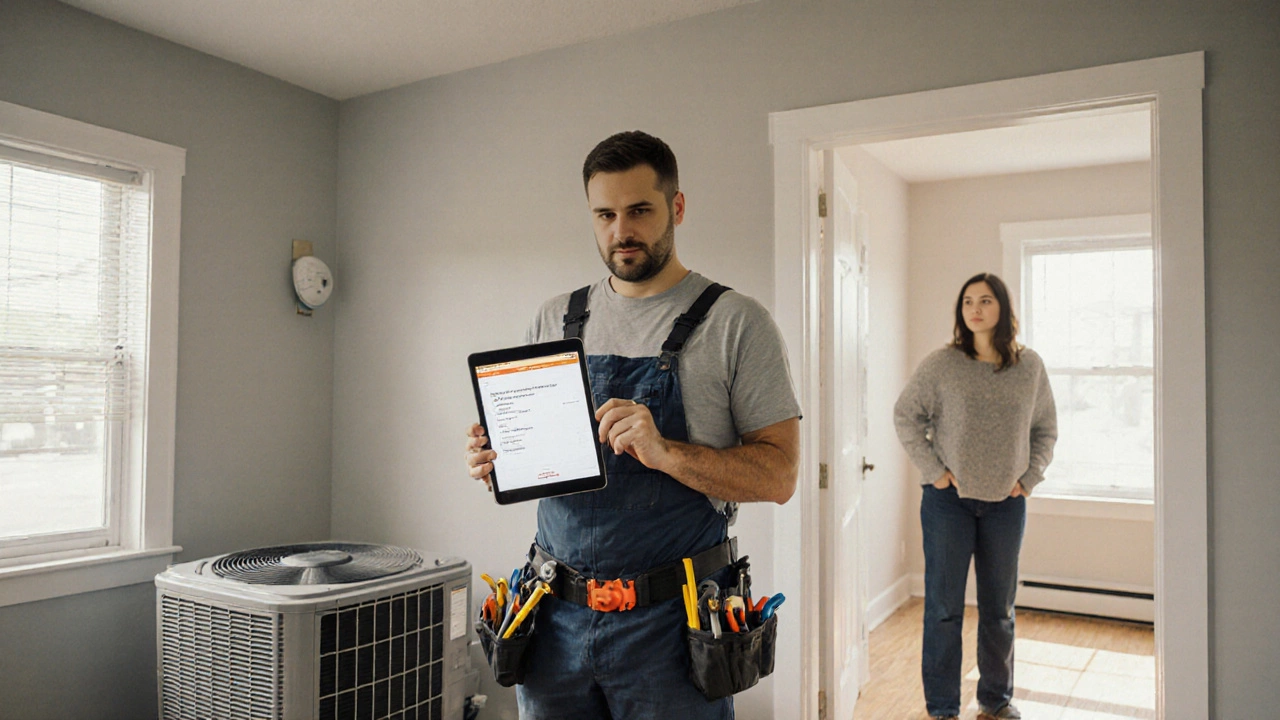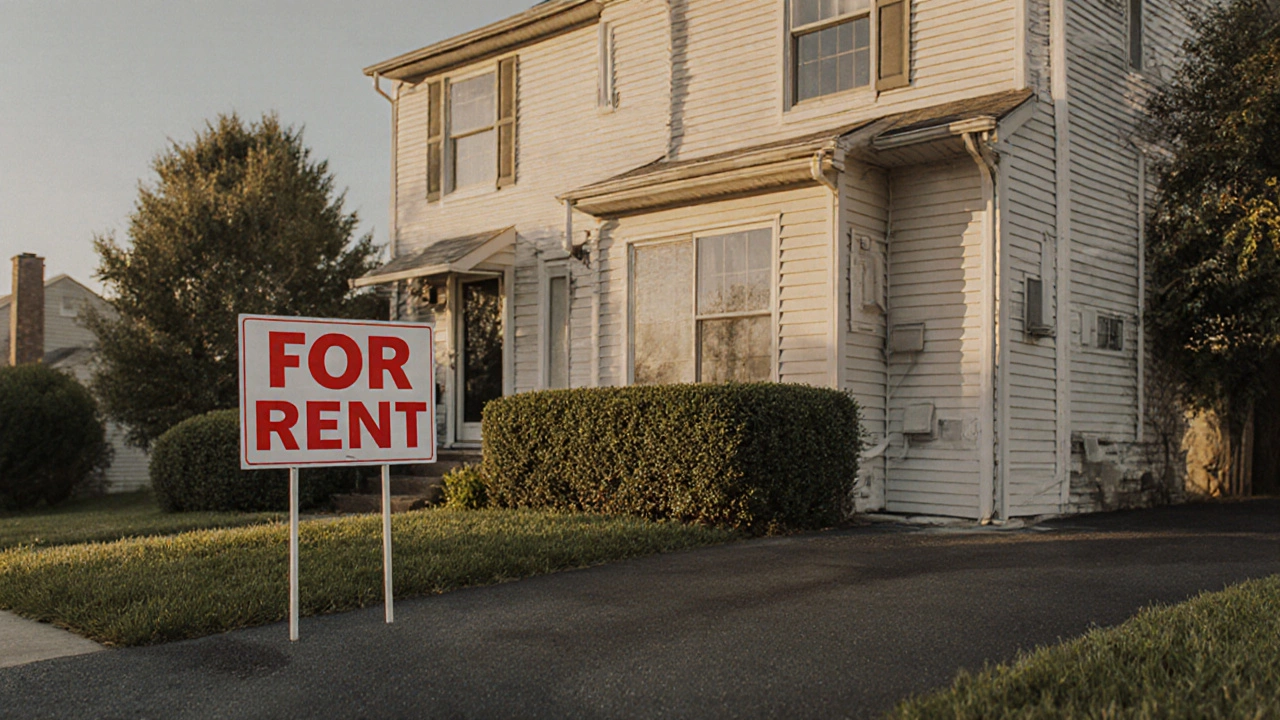Virginia Rent Calculator
Calculate Fair Rent for Your Virginia Property
Determine competitive rental rates based on Virginia market standards and your property costs.
Your Recommended Rent
$0
Minimum Rent Required: $0
Based on Virginia market standards and your property costs.
Virginia Rental Insights
Virginia rents vary significantly by region:
- Northern Virginia: $2,500-$3,500/month for 3-bedroom homes
- Richmond: $1,800-$2,500/month
- Southwest Virginia: $1,100-$1,500/month
- Aim for 5-8% annual return on investment as recommended in the guide.
If you're thinking about renting out your house in Virginia, you're not alone. Thousands of homeowners do it every year to earn extra income, cover mortgage costs, or simply avoid selling. But renting isn't just putting up a "For Rent" sign and waiting for calls. There are legal steps, financial considerations, and practical moves that make the difference between a smooth rental experience and a costly headache.
Know Virginia’s Landlord Laws
Virginia follows a landlord-friendly legal framework, but that doesn’t mean you can ignore the rules. The Virginia Residential Landlord and Tenant Act (VRLTA) applies to most rental properties, unless you’re renting a single-family home and the tenant signs a written waiver. Even then, you still need to follow basic safety and habitability standards.You must provide a written lease agreement. Verbal agreements are legally weak and hard to enforce. Your lease must include the names of all tenants, the rent amount, due date, security deposit terms, and the length of the lease. You can’t charge more than one month’s rent as a security deposit, and you must return it within 45 days after the tenant moves out, along with a written itemized list of any deductions.
Virginia doesn’t require landlords to use state-approved lease forms, but using a clear, legally sound template helps avoid disputes. Many property managers use forms from the Virginia Apartment Management Association or the Virginia Real Estate Board. Don’t copy a lease from the internet without checking it against current Virginia law.
Get Your House Rental-Ready
Before you show the house, treat it like you’re selling it. Tenants don’t rent a house because it’s cheap-they rent because it feels like a home. Clean everything: carpets, windows, appliances, even the garage. Fix leaky faucets, replace broken door handles, and make sure the HVAC system works. A broken heater in January is a lawsuit waiting to happen.Virginia law requires landlords to provide working smoke detectors and carbon monoxide detectors in rental units. Install them in the right spots-near bedrooms and on every level. Test them before the tenant moves in and keep receipts. If a tenant claims they didn’t get working alarms, you’ll need proof you provided them.
Consider upgrading outdated fixtures. Old toilets that run, flickering lights, or a 20-year-old water heater aren’t just annoying-they’re red flags. Tenants notice them. They also notice if you care. A well-maintained house attracts better tenants and reduces turnover.
Screen Tenants Properly
A bad tenant can cost you thousands. Don’t skip screening just because you like the person. In Virginia, you can legally use credit checks, criminal background checks, and eviction history reports. You must get written consent from the applicant before running any check.Use a standard application form. Include income verification-ask for pay stubs or bank statements. A good rule of thumb: the tenant’s gross monthly income should be at least three times the rent. If they’re self-employed, ask for two years of tax returns. Don’t rely on what they say. Verify it.
Call previous landlords. Ask: Did they pay on time? Did they damage the property? Did they leave the place clean? If a landlord says, "They were okay," dig deeper. "Okay" often means "they left a mess and broke the dishwasher."
Set the Right Rent Price
Pricing too high means your house sits empty. Too low, and you’re leaving money on the table. Check comparable rentals in your neighborhood. Look at homes with similar square footage, number of bedrooms, and features. Don’t just look at Zillow or Realtor.com-check local Facebook groups and Craigslist. Those often have the most current listings.Virginia’s rental market varies widely. In Richmond, a 3-bedroom house might rent for $1,800. In Northern Virginia, near D.C., the same house could go for $3,200. In rural areas like Southwest Virginia, you might only get $1,100. Location matters more than square footage.
Factor in your costs: mortgage, property taxes, insurance, maintenance. You need to cover those plus a buffer. A good target: aim for a 5-8% annual return on your investment. If your house is worth $300,000, you should aim for at least $1,250-$2,000 per month in rent.

Sign a Clear, Detailed Lease Agreement
Your lease is your most important document. Don’t use a one-page template from a template site. Use a 6-8 page lease that covers everything. Here’s what must be in it:- Full names and contact info of all tenants and the landlord
- Exact property address and unit number
- Rent amount, due date, late fee (Virginia allows up to 10% late fee after 5 days)
- Security deposit amount and return policy
- Lease term (month-to-month or fixed term)
- Rules on pets, smoking, subletting, and guests
- Who pays for utilities (water, trash, electricity)
- Repair responsibilities (tenant vs. landlord)
- Notice requirements for entry (24 hours minimum in Virginia)
- Conditions for termination
Include an addendum for pet deposits, if applicable. If you allow pets, specify breed and weight limits. Don’t say "no pets" unless you mean it-Virginia law requires reasonable accommodations for service animals, even if your lease says no pets.
Handle Security Deposits Correctly
Virginia limits security deposits to one month’s rent. You must hold it in a separate, interest-bearing account. You can’t mix it with your personal funds. At move-out, you have 45 days to return the deposit or send a written list of deductions. Each deduction must be itemized with receipts or estimates.Common deductions: cleaning beyond normal wear and tear, broken windows, damaged flooring, unpaid utilities. Normal wear and tear? Faded paint, worn carpet, scuffed walls. You can’t charge for that.
Take dated, high-quality photos before the tenant moves in. Do the same when they move out. These photos are your best defense if a tenant disputes deductions. Use your phone, but make sure the date and time stamp are visible.
Stay Compliant With Maintenance and Repairs
Virginia law requires landlords to keep rental properties in a "habitable" condition. That means working plumbing, heat, electricity, and structural safety. If a tenant reports a broken water heater, you have to fix it within a reasonable time-usually 14 days. If it’s an emergency (no heat in winter, no running water), you must act within 24-48 hours.Don’t wait for a tenant to complain. Schedule annual inspections. Check the roof, gutters, foundation, and HVAC. Fix small problems before they become big ones. A $200 gutter repair today can prevent a $10,000 basement flood next year.
Keep a log of all maintenance requests and repairs. Include dates, what was done, and who did it. This protects you if a tenant claims you ignored a problem.

Know When and How to Evict
Eviction is never pleasant, but sometimes it’s necessary. Virginia law gives you clear steps. If rent is late, send a written 5-day notice to pay or quit. If they don’t pay, file a detainer warrant in General District Court. You can’t lock them out, cut utilities, or remove their stuff-that’s illegal and can cost you thousands in damages.Evictions take time. On average, it takes 4-8 weeks from notice to move-out. Plan for that. Don’t rely on rent from a tenant who’s behind. Keep a reserve fund for at least two months of mortgage payments.
Always use the court system. Even if the tenant agrees to leave, get it in writing. A signed move-out form with a date and condition of the property protects you later.
Consider Hiring a Property Manager
If you live out of state or don’t have time to handle repairs, calls at 10 p.m., or eviction paperwork, a property manager can save you stress. In Virginia, property managers typically charge 8-12% of monthly rent. They handle screening, rent collection, maintenance, and legal notices.Look for a manager licensed by the Virginia Department of Professional and Occupational Regulation (DPOR). Ask for references. Check reviews on Google and the Better Business Bureau. Don’t pick the cheapest one-pick the one with the best track record.
Even if you manage the property yourself, keep a network of trusted contractors: plumbers, electricians, handymen. Save their numbers. When something breaks, you need someone who shows up fast and doesn’t overcharge.
Prepare for Taxes and Insurance
Rental income is taxable. You must report it on your federal and Virginia state tax returns. But you can deduct expenses: mortgage interest, property taxes, insurance, repairs, advertising, property management fees, and even mileage if you drive to the property.Get landlord insurance. Your homeowners policy won’t cover rental damage or liability claims from tenants. Landlord insurance covers property damage, loss of rent if the house is uninhabitable, and lawsuits if someone gets hurt on the property. Expect to pay $1,200-$2,500 per year, depending on location and coverage.
Keep all receipts and records for at least seven years. The IRS can audit you for up to six years after filing.
Can I rent out my house in Virginia without a real estate agent?
Yes, you can rent out your house in Virginia without an agent. Many landlords do it successfully by listing on platforms like Zillow, Facebook Marketplace, or Craigslist. You’ll handle showings, applications, and leases yourself. But if you’re unfamiliar with Virginia landlord laws or don’t have time to manage tenants, an agent can save you time and legal risk.
What’s the minimum credit score for a tenant in Virginia?
Virginia doesn’t set a legal minimum credit score. But most landlords look for a score of 620 or higher. A score below 600 increases the risk of late payments or default. If a tenant has a low score but a high income and strong rental history, you can still approve them-just require a larger security deposit or a co-signer.
Can I raise the rent during the lease term?
No, you cannot raise the rent during a fixed-term lease (like a 12-month lease). The rent amount is locked in until the lease ends. After the lease expires, you can increase the rent with proper notice-typically 30 days for month-to-month tenancies or as stated in the lease. Virginia doesn’t cap rent increases, but sudden large hikes can lead to tenant turnover.
Do I need to register my rental property in Virginia?
Virginia doesn’t require statewide registration of rental properties. But some cities and counties do. For example, Richmond requires rental registration and inspection. Check with your local housing authority or city hall. Failing to register where required can result in fines or legal penalties.
What happens if a tenant breaks the lease early?
If a tenant breaks the lease, you must make a reasonable effort to re-rent the property. You can’t just leave it empty and demand they pay the full remaining rent. Once you find a new tenant, the original tenant owes rent only up to the point the new one moves in. You can charge them for advertising costs and lost rent during the vacancy, but you must document everything.
Renting out your house in Virginia can be a smart financial move-if you do it right. The key isn’t just finding a tenant. It’s building a system: clear rules, solid documentation, timely maintenance, and legal compliance. Take the time upfront, and you’ll save months of stress later.

